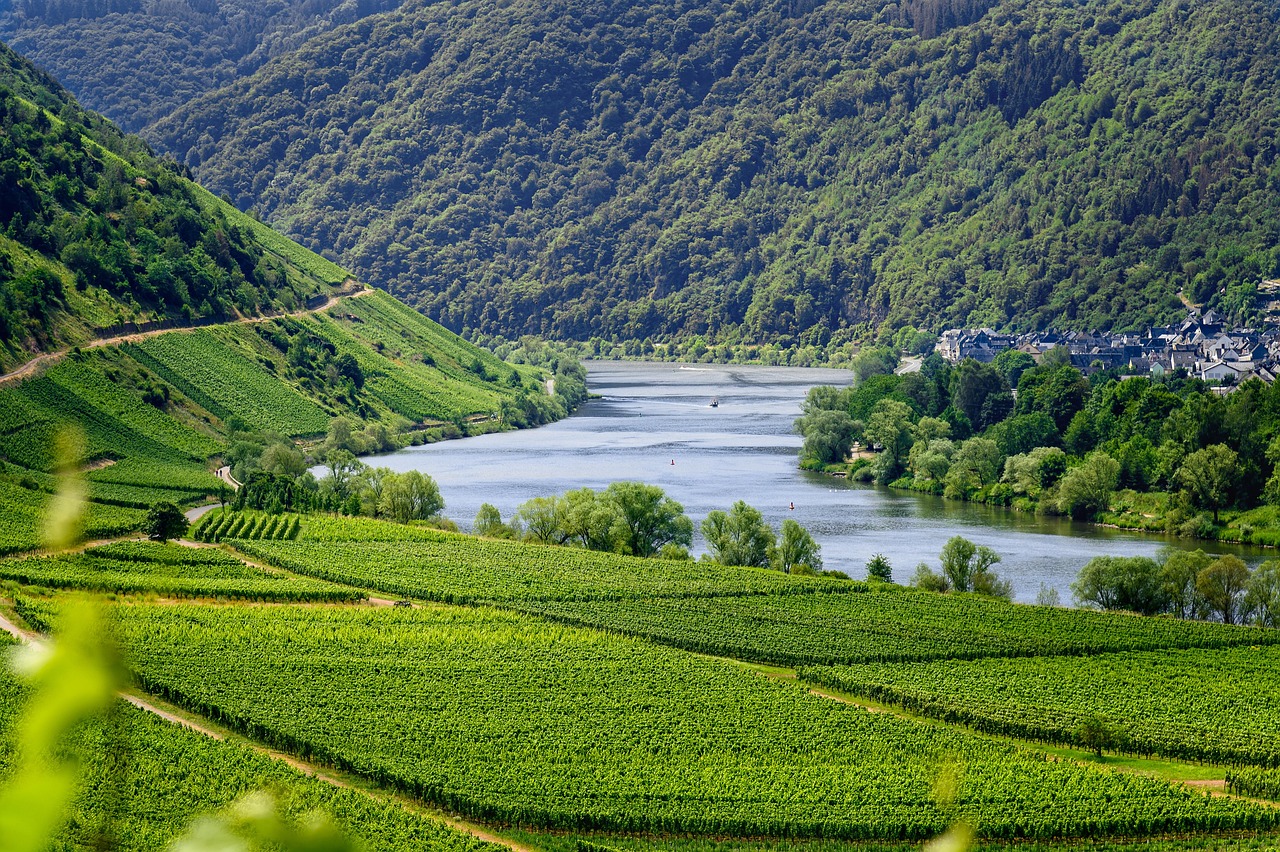This article provides a comprehensive review of Gambino Sparkling Wine, exploring its origins, taste profiles, and overall value, helping you determine if it lives up to the excitement surrounding it.
Gambino Sparkling Wine is an exceptional Italian wine renowned for its refreshing bubbles and unique flavor profile. Originating from the picturesque vineyards of Italy, it is crafted using a blend of traditional and modern winemaking techniques. The meticulous attention to detail in its production process results in a sparkling wine that is both elegant and approachable.
Understanding the geographic roots of Gambino Sparkling Wine enhances appreciation. This wine is primarily produced in the Campania region of Italy, where the fertile volcanic soils and favorable climate contribute to the grapes’ exceptional quality. The unique terroir here plays a significant role in shaping the wine’s distinctive taste.
Gambino Sparkling Wine stands out due to its unique blend of traditional methods and innovative practices. The use of indigenous grape varieties, combined with modern fermentation techniques, creates a sparkling wine that is both refreshing and complex. The balance of acidity and sweetness, along with its fine bubbles, sets it apart from other sparkling wines on the market.
The taste profile of Gambino Sparkling Wine is crucial for potential buyers. Expect a delightful combination of citrus, green apple, and subtle floral notes on the nose. On the palate, it offers a crisp, refreshing acidity balanced with a touch of sweetness, making it a versatile choice for various occasions.
Pairing wine with food can enhance the dining experience. Gambino Sparkling Wine pairs beautifully with a variety of dishes. Consider serving it with:
- Seafood dishes, such as grilled shrimp or oysters
- Light salads with citrus vinaigrette
- Cheese platters featuring brie or goat cheese
- Delicate desserts like fruit tarts or panna cotta
Gambino offers a range of sparkling wine varieties, each with distinct characteristics. The most popular include:
- Gambino Prosecco – Known for its fruity notes and vibrant bubbles.
- Gambino Brut – A dry option with a crisp finish.
- Gambino Rosé – A delightful blend that adds a touch of elegance.
The production process of Gambino Sparkling Wine involves several intricate steps. The grapes are handpicked, followed by a gentle pressing to extract the juice. Fermentation occurs in stainless steel tanks, where temperature control ensures the preservation of the wine’s fresh flavors. Secondary fermentation takes place in the bottle, creating the signature bubbles that Gambino is known for.
Alcohol content can influence the selection of a wine for various occasions. Typically, Gambino Sparkling Wine has an alcohol content ranging from 11% to 12.5%, making it a light and enjoyable choice for celebrations or casual gatherings.
Availability is key for consumers. You can purchase Gambino Sparkling Wine at local wine shops, specialty retailers, and online platforms. Some popular online retailers include Wine.com and Total Wine, making it easy to find your favorite variety.
Expert opinions can guide purchasing decisions. Reviews from wine connoisseurs highlight Gambino’s exceptional quality and value. Many praise its refreshing taste and versatility, making it a go-to choice for both casual drinkers and seasoned wine enthusiasts.
Pricing can greatly affect consumer choices. Generally, Gambino Sparkling Wine is reasonably priced, ranging from $15 to $25 per bottle, depending on the variety. This price point offers great value for the quality, making it accessible for various occasions.
Finally, we assess whether Gambino Sparkling Wine lives up to its reputation. With its unique flavor profile, quality production methods, and reasonable pricing, it is clear that this sparkling wine is indeed worth the hype. Whether celebrating a special occasion or enjoying a casual meal, Gambino Sparkling Wine is a delightful choice that will not disappoint.
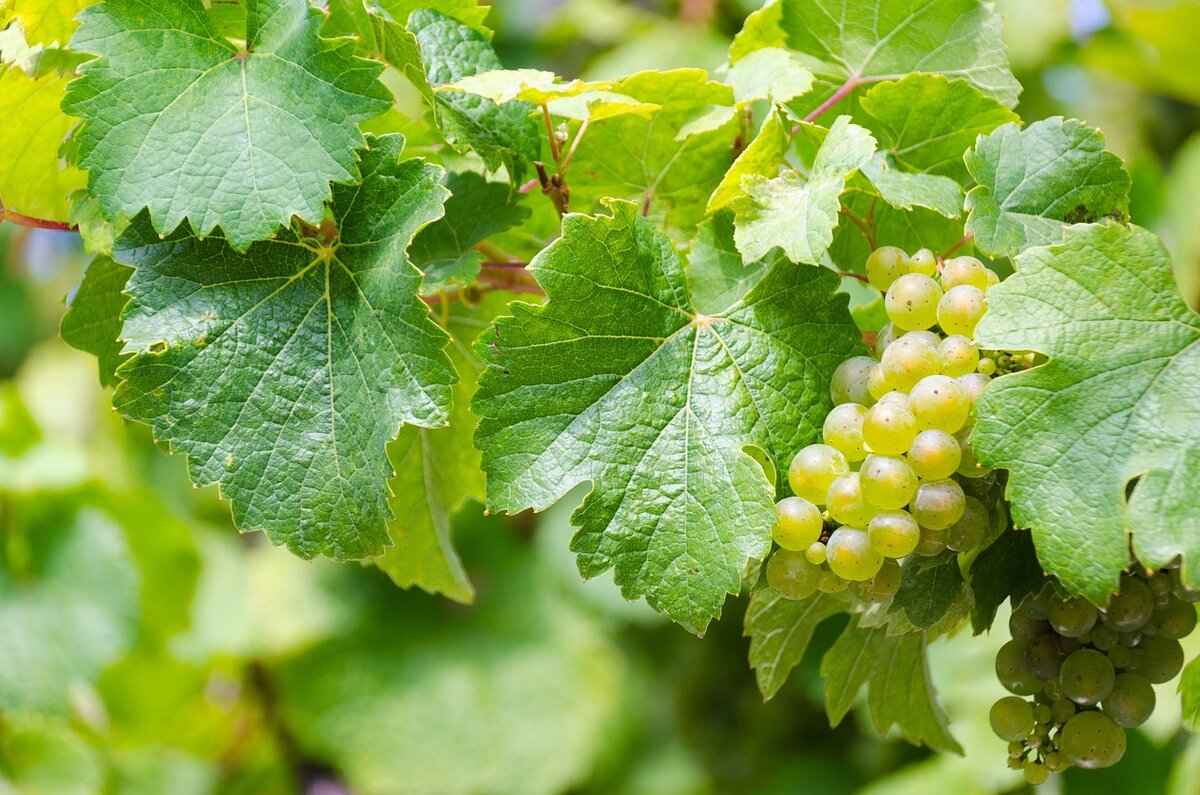
What Is Gambino Sparkling Wine?
Gambino Sparkling Wine is a delightful representation of Italian winemaking, celebrated for its refreshing bubbles and distinctive flavor profile. This wine emerges from a rich heritage of traditional methods combined with modern techniques, resulting in a product that is both accessible and sophisticated. Understanding the essence of Gambino Sparkling Wine requires a look into its origins, production methods, and the unique characteristics that set it apart in the world of sparkling wines.
The origins of Gambino Sparkling Wine can be traced back to the picturesque regions of Italy, particularly in areas known for their fertile soils and favorable climates. The vineyards are often located in the foothills, where the combination of sun exposure and cool breezes creates the perfect environment for grape cultivation. The primary grape varieties used in Gambino Sparkling Wine include Glera, which is known for its crispness and floral notes, and Chardonnay, which adds depth and complexity to the wine.
One of the key aspects that contribute to the unique flavor profile of Gambino Sparkling Wine is its production method. The wine is typically crafted using the Charmat method, a process that allows the wine to undergo secondary fermentation in large pressurized tanks. This method not only preserves the freshness of the grapes but also enhances the natural fruit flavors and aromas. As a result, Gambino Sparkling Wine is known for its lively bubbles and vibrant taste, making it an excellent choice for various occasions.
When you take a sip of Gambino Sparkling Wine, you are greeted with a burst of flavors that can include notes of green apple, pear, and subtle hints of citrus. The wine’s effervescence adds to the overall experience, creating a refreshing sensation on the palate. The balance of acidity and sweetness makes it versatile for pairing with a wide array of dishes, from light appetizers to rich desserts.
In addition to its delightful taste, Gambino Sparkling Wine also boasts an impressive alcohol content, typically ranging from 11% to 12.5%. This moderate level makes it suitable for casual sipping or as a celebratory drink during special events. The wine’s approachable nature has contributed to its growing popularity among wine enthusiasts and casual drinkers alike.
Overall, Gambino Sparkling Wine is a testament to the artistry of Italian winemaking. Its refreshing bubbles, unique flavor profile, and versatile nature make it a standout choice for any wine lover. Whether you’re toasting a special occasion or simply enjoying a quiet evening at home, Gambino Sparkling Wine is sure to impress with its quality and character.
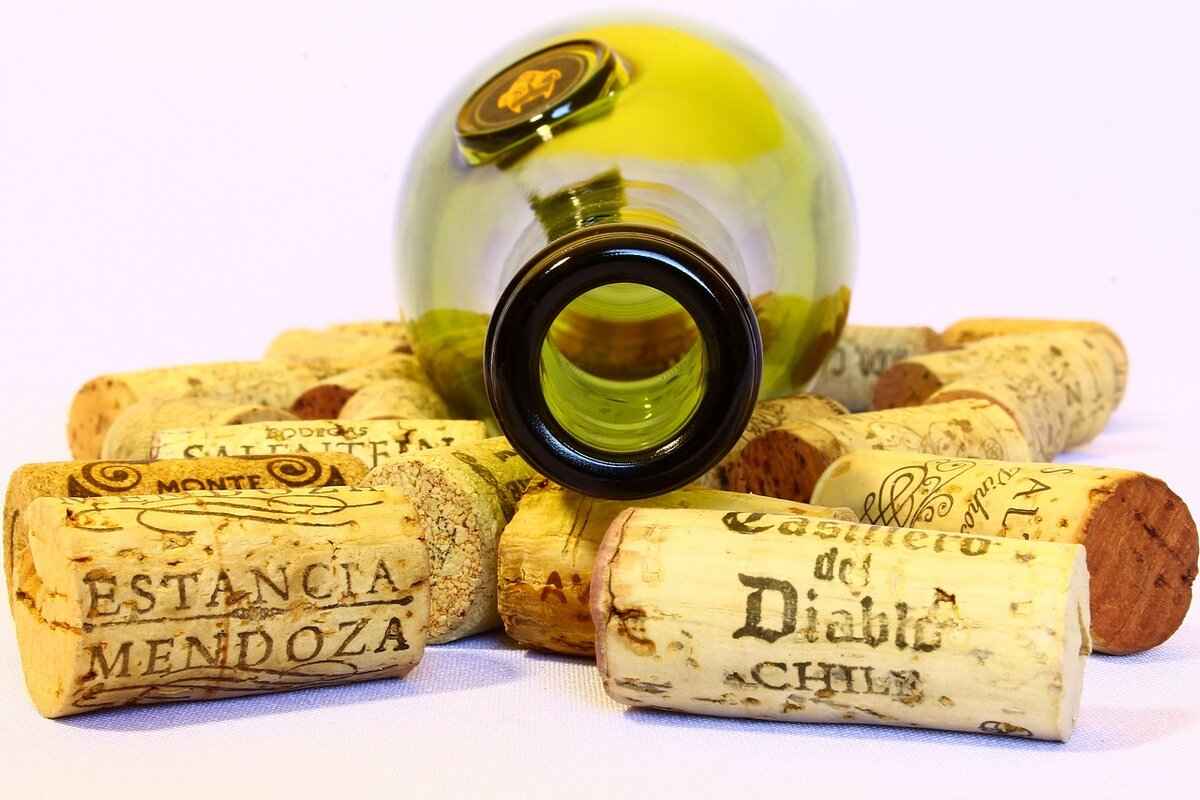
Where Is Gambino Sparkling Wine Produced?
When it comes to appreciating Gambino Sparkling Wine, understanding its geographic roots is essential. This exquisite wine originates from specific regions in Italy, each contributing unique characteristics to its flavor profile. In this section, we delve into the key areas where Gambino Sparkling Wine is produced, highlighting the terroir that influences its taste.
Gambino Sparkling Wine is primarily crafted in the Sicilian region of Italy, known for its diverse landscapes and rich agricultural traditions. The island’s warm climate and fertile volcanic soil provide an ideal environment for grape cultivation. The combination of Mediterranean breezes and ample sunshine creates conditions that allow grapes to develop their full flavor potential.
One of the standout areas within Sicily is the Etna region, located on the slopes of Mount Etna, Europe’s highest active volcano. The unique terroir here is characterized by its mineral-rich soils, which impart distinct flavors to the grapes. The altitude of the vineyards, combined with the volcanic ash, helps to maintain acidity in the grapes, resulting in a balanced and refreshing sparkling wine.
In addition to Etna, Gambino also sources grapes from other notable regions in Sicily, such as Trapani and Palermo. These areas benefit from the Mediterranean climate, which ensures that the grapes ripen evenly and develop complex flavor profiles. The local grape varieties, including Grillo and Nero d’Avola, are often used in the production of Gambino Sparkling Wine, adding to its uniqueness.
The winemaking techniques employed by Gambino are also influenced by the regional characteristics. Traditional methods are blended with modern technology to create a wine that reflects the essence of its origins. The fermentation process often takes place in stainless steel tanks, preserving the fresh and fruity notes that are characteristic of Gambino Sparkling Wine.
To further appreciate the complexity of Gambino Sparkling Wine, it is essential to consider the microclimates present in these regions. Variations in elevation, exposure to sunlight, and soil composition all play a crucial role in shaping the flavor and aroma of the wine. For instance, grapes grown in cooler areas may exhibit higher acidity and more delicate flavors, while those from warmer sites may offer bolder, fruit-forward profiles.
In summary, the geographic roots of Gambino Sparkling Wine are integral to its identity. The combination of Sicily’s unique terroir, the influence of volcanic soils, and the expert winemaking techniques all contribute to the wine’s exceptional quality. By understanding these factors, wine enthusiasts can gain a deeper appreciation for Gambino Sparkling Wine and the artistry behind its production.
| Region | Key Characteristics | Grape Varieties |
|---|---|---|
| Etna | Mineral-rich soils, high altitude | Grillo, Nerello Mascalese |
| Trapani | Mediterranean climate, even ripening | Nero d’Avola, Grillo |
| Palermo | Warm climate, diverse microclimates | Grillo, Catarratto |

What Makes Gambino Sparkling Wine Unique?
Gambino Sparkling Wine is a remarkable product that captures the essence of both traditional and contemporary winemaking techniques. This unique combination sets it apart from other sparkling wines available in the market today. In this section, we will delve into the distinctive characteristics that make Gambino Sparkling Wine truly exceptional.
One of the key factors contributing to the uniqueness of Gambino Sparkling Wine is its blend of grape varieties. The winemakers skillfully select grapes from various regions in Italy, ensuring a complex flavor profile. This meticulous selection process allows for a harmonious balance of sweetness and acidity, resulting in a refreshing and vibrant taste.
The production methods employed in creating Gambino Sparkling Wine also play a significant role in its uniqueness. The winery utilizes both the traditional Metodo Classico and modern techniques, which include the Charmat method. The Metodo Classico involves a secondary fermentation in the bottle, creating fine bubbles and a rich mouthfeel. On the other hand, the Charmat method, which ferments the wine in large stainless-steel tanks, preserves the fresh and fruity characteristics of the grapes. This dual approach ensures that each bottle of Gambino Sparkling Wine offers a delightful experience.
Another aspect that makes this wine stand out is its terroir. The vineyards are located in regions with unique climates and soil types that impart distinct flavors to the grapes. For instance, the volcanic soil in some areas enhances the mineral notes in the wine, while the Mediterranean climate contributes to the fruit’s ripeness. This combination of factors results in a wine that is not only refreshing but also showcases the characteristics of its origin.
| Characteristic | Details |
|---|---|
| Grape Varieties | Carefully selected from various Italian regions |
| Production Methods | Combination of Metodo Classico and Charmat method |
| Terroir | Unique climates and volcanic soils |
The aromas of Gambino Sparkling Wine are another highlight. With notes of citrus, green apple, and floral hints, the bouquet is inviting and complex. As you take a sip, the taste profile unfolds with layers of flavor, including ripe fruit and a touch of minerality, leaving a crisp and clean finish. This combination of aromas and flavors makes it a versatile wine that pairs well with a variety of dishes.
Moreover, Gambino Sparkling Wine’s versatility extends beyond just food pairings. It is an excellent choice for celebrations, casual gatherings, or even a quiet evening at home. The wine’s ability to adapt to different occasions adds to its appeal, making it a favorite among wine enthusiasts and casual drinkers alike.
In conclusion, Gambino Sparkling Wine’s unique characteristics stem from its blend of traditional and modern winemaking techniques, diverse grape varieties, and the exceptional terroir of its vineyards. These elements come together to create a sparkling wine that is not only refreshing but also rich in flavor and complexity. Whether you are a seasoned wine connoisseur or a casual drinker, Gambino Sparkling Wine is sure to impress.

How Does Gambino Sparkling Wine Taste?
The taste profile of Gambino Sparkling Wine is essential for potential buyers, as it offers a unique experience that can elevate any occasion. This section delves into the intricate flavor notes, enticing aromas, and the overall drinking experience that this delightful wine provides.
Upon the first sip, you will likely notice a refreshing burst of citrus fruits, such as lemon and grapefruit, which create a vibrant and invigorating start. These bright flavors are often complemented by subtle hints of green apple and pear, adding layers of complexity to the palate. As the wine opens up, you may detect a gentle undertone of white peach and honeydew, which contribute to its overall fruit-forward character.
In addition to the fruity notes, the aroma of Gambino Sparkling Wine is equally captivating. The initial scent is often marked by floral hints, reminiscent of jasmine and honeysuckle, which provide a lovely aromatic bouquet. As you continue to explore its fragrance, you might also encounter a subtle minerality that reflects the unique terroir of its Italian origins, enhancing the wine’s overall appeal.
The mouthfeel of Gambino Sparkling Wine is another aspect that sets it apart. The fine bubbles create a delightful effervescence that dances on the tongue, making each sip a joyful experience. This light and crisp texture is balanced by a refreshing acidity that keeps the wine lively and invigorating, making it an excellent choice for celebrations or casual gatherings alike.
As you savor the finish, you may find lingering notes of almond and a touch of toasted brioche, which add depth and sophistication to the overall drinking experience. This harmonious blend of flavors and aromas not only showcases the quality of the wine but also leaves a lasting impression, inviting you to return for another sip.
For those considering a purchase, understanding the taste profile of Gambino Sparkling Wine is crucial. Its combination of vibrant fruit flavors, alluring aromas, and a refreshing finish makes it a versatile option for various occasions. Whether you’re celebrating a special moment or simply enjoying a quiet evening, this sparkling wine promises to enhance your experience.
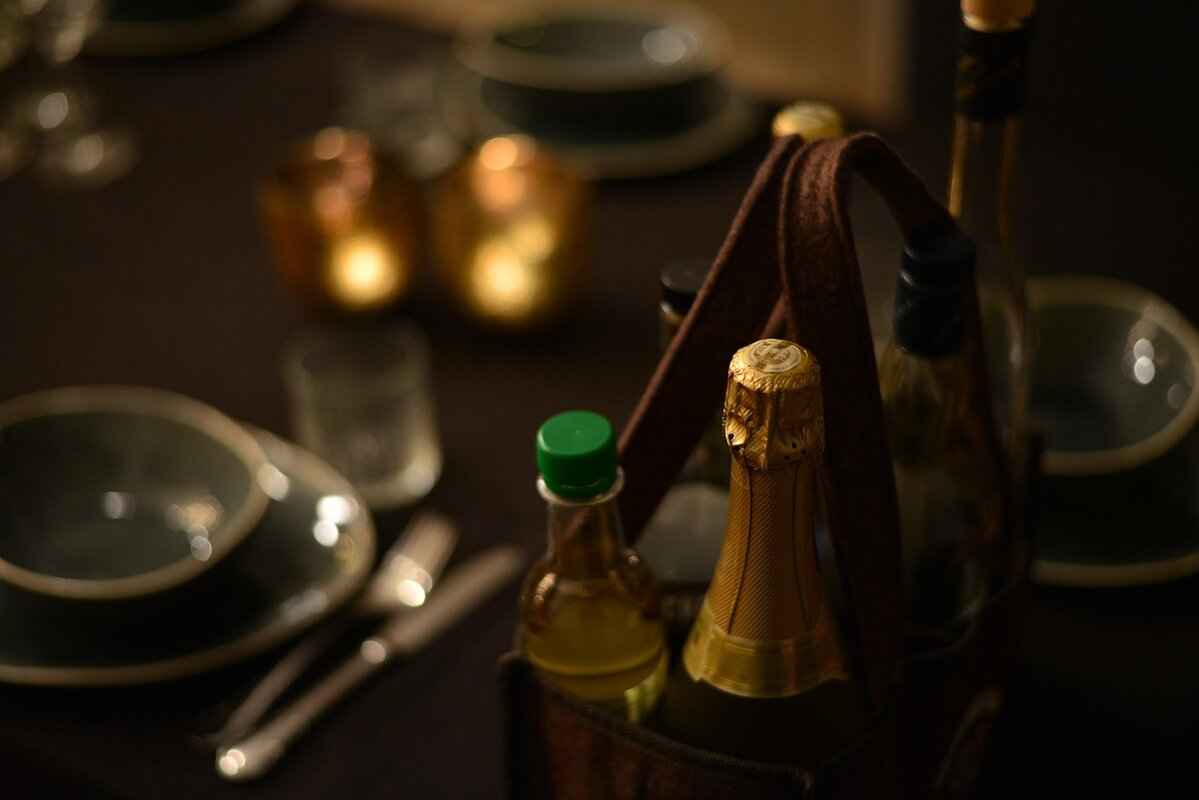
What Food Pairings Work Best with Gambino Sparkling Wine?
When it comes to elevating your dining experience, pairing wine with food is an art that can significantly enhance flavors and enjoyment. Gambino Sparkling Wine, with its refreshing bubbles and vibrant character, opens up a world of culinary possibilities. Below, we explore the best food pairings that will complement this exquisite wine, ensuring a delightful gastronomic adventure.
- Seafood Dishes: The crisp acidity and effervescence of Gambino Sparkling Wine make it a perfect match for seafood. Dishes like grilled shrimp, oysters, and seared scallops highlight the wine’s refreshing qualities while balancing the natural salinity of the seafood.
- Salads: Light salads featuring citrus-based dressings pair beautifully with Gambino. Consider a mixed greens salad with grapefruit segments or a Caprese salad with fresh mozzarella and tomatoes, drizzled with olive oil and balsamic vinegar.
- Poultry: Gambino Sparkling Wine also complements poultry dishes, particularly those prepared with a hint of sweetness. Roasted chicken with a honey glaze or duck à l’orange can enhance the wine’s fruity notes.
- Cheese Platters: A selection of cheeses can create a delightful pairing with Gambino. Opt for creamy cheeses like Brie or Camembert, and pair them with fruity accompaniments such as figs or apricots for a balanced experience.
- Asian Cuisine: The versatility of Gambino makes it an excellent partner for Asian dishes. Sushi, tempura, or spicy Thai dishes can be beautifully complemented by the wine’s effervescence and acidity.
When considering the perfect food pairings for Gambino Sparkling Wine, it’s essential to think about the flavor profile of the wine itself. With its delicate bubbles and crisp finish, this wine can enhance a range of dishes, creating a harmonious balance that elevates the overall dining experience. Remember to serve the wine chilled to fully appreciate its refreshing qualities.
In conclusion, whether you’re hosting a dinner party or enjoying a quiet meal at home, selecting the right dishes to accompany Gambino Sparkling Wine can transform your meal into a memorable occasion. Experiment with different pairings to discover your personal favorites, and enjoy the delightful journey that this sparkling wine offers.

What Are the Different Varieties of Gambino Sparkling Wine?
Gambino Sparkling Wine is celebrated for its exquisite selection, offering a variety of sparkling wine types that cater to diverse palates. Each variety possesses unique characteristics, flavors, and aromas, making them special in their own right. Below, we delve into the different types of Gambino Sparkling Wine and explore what makes each one stand out.
- Gambino Prosecco:
This delightful sparkling wine hails from the Veneto region of Italy. Known for its crisp and refreshing profile, Gambino Prosecco features notes of green apple, honeysuckle, and pear. The charm of its light bubbles makes it an ideal choice for celebrations or casual gatherings.
- Gambino Moscato:
For those who prefer a sweeter option, Gambino Moscato is a perfect fit. This wine is characterized by its fruity and floral aromas, with hints of peach, apricot, and orange blossom. The lower alcohol content and natural sweetness make it a delightful pairing with desserts or spicy dishes.
- Gambino Spumante:
Gambino Spumante is a full-bodied sparkling wine that offers a rich and complex flavor profile. It is crafted using traditional methods, resulting in a creamy texture and persistent bubbles. The wine features notes of citrus and stone fruits, making it versatile for pairing with a variety of dishes.
- Gambino Brut:
For those who enjoy a drier option, Gambino Brut provides a sophisticated choice. With its balanced acidity and elegant finish, this sparkling wine presents flavors of green apple, citrus zest, and a hint of minerality. It pairs beautifully with seafood and light appetizers.
- Gambino Rosé:
Gambino Rosé is a stunning option for wine lovers who appreciate a touch of color. This sparkling wine boasts a fruity and floral bouquet, with flavors of strawberry, raspberry, and a hint of rose petals. Its versatility makes it suitable for both casual and formal occasions.
Each variety of Gambino Sparkling Wine is crafted with care, highlighting the rich traditions of Italian winemaking. The unique characteristics of these wines not only reflect the terroir of their origins but also cater to a wide range of tastes and preferences. Whether you are celebrating a special occasion or simply enjoying a quiet evening, there is a Gambino sparkling wine that is sure to enhance your experience.
With such a diverse selection, exploring the different varieties of Gambino Sparkling Wine can be a delightful journey. From the refreshing Prosecco to the elegant Brut, each bottle tells a story of craftsmanship and passion. So, raise a glass and discover the unique flavors that Gambino has to offer!

How Is Gambino Sparkling Wine Made?
The production process of Gambino Sparkling Wine is a fascinating journey that combines tradition and innovation. This exquisite wine is crafted through a series of meticulous steps that ensure its exceptional quality and distinctive flavor profile.
To begin with, the process starts in the vineyard, where the grapes are carefully selected. Gambino Sparkling Wine primarily uses indigenous grape varieties, such as Glera, which is known for its aromatic qualities. The grapes are harvested at the optimal time to ensure they maintain their acidity and natural sugars, crucial for producing high-quality sparkling wine.
Once harvested, the grapes undergo a process called pressing. This involves gently crushing the grapes to extract the juice while minimizing the extraction of tannins from the skins. The juice is then clarified through sedimentation, allowing impurities to settle before fermentation begins.
The fermentation process is where the magic truly happens. The clarified juice is transferred to fermentation tanks, where it is inoculated with selected yeast strains. This fermentation typically lasts for several weeks, during which the yeast converts the sugars in the grape juice into alcohol, creating a base wine. The temperature is carefully controlled to preserve the delicate flavors and aromas of the wine.
After the primary fermentation, the wine is often blended with other base wines to achieve the desired flavor profile. This blending process is crucial, as it allows the winemaker to create a consistent product year after year. Once blended, the wine undergoes a second fermentation, which is essential for producing the characteristic bubbles of sparkling wine.
The second fermentation takes place in sealed tanks or bottles, depending on the method used. In the Charmat method, commonly used for Gambino Sparkling Wine, the wine undergoes secondary fermentation in large pressure tanks. This method enhances the wine’s freshness and fruity characteristics, resulting in a lively and effervescent product.
After the secondary fermentation, the wine is subjected to a process known as riddling, where bottles are gradually tilted and turned to collect the sediment in the neck of the bottle. This step is crucial for achieving clarity in the final product. Once the sediment has settled, the neck of the bottle is frozen, and the sediment is removed in a process called disgorgement.
Finally, the wine is dosed with a mixture of wine and sugar, known as liqueur d’expédition, which adds sweetness and balances the wine’s acidity. The bottles are then corked, secured with a wire cage, and labeled, ready to be enjoyed.
In summary, the production of Gambino Sparkling Wine involves a complex interplay of traditional techniques and modern practices. Each step, from grape selection to the final bottling, plays a vital role in crafting a wine that is not only refreshing but also rich in flavor and character. This meticulous process ensures that each bottle of Gambino Sparkling Wine delivers a delightful experience for wine lovers.

What Is the Alcohol Content of Gambino Sparkling Wine?
When selecting a wine for a particular occasion, alcohol content plays a crucial role in the decision-making process. Whether you’re planning a celebratory toast, a casual dinner, or a festive gathering, understanding the alcohol levels in your chosen wine can significantly influence the overall experience. In this section, we will explore the typical alcohol content found in Gambino Sparkling Wine and how it aligns with various occasions.
Gambino Sparkling Wine is known for its delightful effervescence and refreshing taste, but its alcohol by volume (ABV) is also an essential factor to consider. Generally, the alcohol content in Gambino Sparkling Wine ranges from 11% to 12.5% ABV. This level is relatively moderate compared to other wines, making it an excellent choice for a variety of settings.
| Type of Occasion | Recommended Alcohol Content | Why Gambino Sparkling Wine Fits |
|---|---|---|
| Casual Gatherings | 10% – 12% | Light and refreshing, perfect for mingling. |
| Celebratory Events | 12% – 13% | Festive bubbles enhance the celebratory mood. |
| Formal Dinners | 11% – 14% | Pairs well with various dishes without overwhelming flavors. |
The moderate alcohol content of Gambino Sparkling Wine makes it a versatile option. For casual gatherings, its lower ABV allows guests to enjoy a few glasses without feeling overly intoxicated. This is particularly beneficial when hosting events where guests may want to socialize and enjoy the wine over an extended period.
For celebratory events, the delightful bubbles and moderate alcohol content create a festive atmosphere. Gambino’s sparkling nature can elevate any occasion, from weddings to milestone celebrations, ensuring that the wine enhances the joyous experience rather than detracting from it.
When it comes to formal dinners, the 11% to 12.5% ABV of Gambino Sparkling Wine allows for a sophisticated pairing with various dishes. Its balanced profile complements a wide range of flavors, making it a suitable choice for multi-course meals. The wine’s effervescence can cleanse the palate and enhance the dining experience, making it a favorite among wine enthusiasts.
In conclusion, understanding the alcohol content of Gambino Sparkling Wine is vital for making informed choices for different occasions. With its moderate ABV, Gambino Sparkling Wine offers a delightful balance that suits casual gatherings, celebratory events, and formal dinners alike. This versatility, combined with its refreshing taste and quality, makes it a worthy addition to any wine lover’s collection.

Where Can You Buy Gambino Sparkling Wine?
Availability is key for consumers when it comes to selecting the perfect bottle of wine. Gambino Sparkling Wine, with its unique flavor profile and delightful bubbles, has garnered significant attention. This section will explore the various avenues through which you can purchase this exquisite wine, ensuring you have the best options at your fingertips.
In today’s digital age, online shopping has become a go-to method for wine enthusiasts. Several reputable online retailers offer Gambino Sparkling Wine, making it easy to browse and purchase from the comfort of your home. Here are some popular platforms:
- Wine.com – A well-known online wine retailer that often features a wide selection of Gambino Sparkling Wine, complete with customer reviews and ratings.
- Vivino – This platform not only allows you to buy wine but also provides user-generated ratings and reviews, helping you make informed choices.
- Drizly – Perfect for those who want same-day delivery, Drizly partners with local liquor stores to deliver Gambino Sparkling Wine right to your doorstep.
If you prefer the tactile experience of shopping in person, local wine shops are a fantastic option. Many specialty wine stores carry Gambino Sparkling Wine, often providing the opportunity to consult with knowledgeable staff. Here’s how to locate these shops:
- Check Local Listings – Use online maps or search engines to find wine shops in your area that might stock Gambino Sparkling Wine.
- Ask for Recommendations – Reach out to friends or local wine enthusiasts for their favorite stores that carry Gambino products.
- Visit Wine Tastings – Local wine tastings can be a great way to discover new wines, including Gambino, and often provide purchasing options on-site.
Another innovative way to access Gambino Sparkling Wine is through wine clubs and subscription services. Many of these services curate selections based on your preferences and deliver them directly to your door. Consider these options:
- Firstleaf – This subscription service offers personalized wine selections and often features sparkling wines, including Gambino.
- Winc – Known for its user-friendly interface, Winc allows you to explore various wines and may include Gambino in its offerings.
Lastly, keep an eye out for specialty retailers or local events that might feature Gambino Sparkling Wine. Wine festivals and fairs often showcase a variety of wines, providing a unique opportunity to taste and purchase directly from vendors.
In conclusion, whether you prefer the convenience of online shopping or the personal touch of local retailers, there are numerous options to purchase Gambino Sparkling Wine. With its growing popularity, finding this delightful sparkling wine has never been easier.

What Do Experts Say About Gambino Sparkling Wine?
When it comes to making informed purchasing decisions, expert opinions play a crucial role, especially in the world of wine. In this section, we will delve into what wine connoisseurs and critics have to say about Gambino Sparkling Wine. By summarizing their reviews and ratings, we aim to provide you with a comprehensive understanding of its quality and appeal.
Gambino Sparkling Wine has garnered attention from various wine critics, many of whom praise its refreshing taste and elegant bubbles. The wine is often described as having a vibrant character, making it a delightful choice for celebrations and casual gatherings alike. Critics frequently highlight its balance of acidity and sweetness, which contributes to a well-rounded flavor profile.
According to Wine Enthusiast, Gambino Sparkling Wine exhibits a fruity aroma with notes of green apple and citrus, complemented by a subtle floral undertone. This combination makes it not only refreshing but also versatile, pairing well with a variety of dishes. The publication rates it highly for its affordability and quality, often recommending it as a go-to option for those exploring sparkling wines.
Another respected source, Wine Spectator, emphasizes the wine’s crisp finish and persistent bubbles. Their tasting notes suggest that the wine’s effervescence enhances its overall drinking experience, making it a popular choice among both casual drinkers and seasoned wine enthusiasts. The critics also appreciate the wine’s food pairing potential, suggesting that it complements seafood, light salads, and even spicy dishes.
Moreover, the International Wine Challenge has recognized Gambino Sparkling Wine for its consistent quality across different vintages. The judges noted that the wine maintains a high standard, showcasing the skill and dedication of the winemakers. This recognition adds an extra layer of credibility, making it a reliable choice for consumers.
Social media platforms and wine forums also reflect a positive sentiment towards Gambino Sparkling Wine. Many users share their personal experiences, emphasizing its affordability without compromising on taste. This grassroots feedback aligns with expert reviews, further solidifying its reputation in the market.
In summary, the consensus among experts and enthusiasts alike is that Gambino Sparkling Wine is a commendable choice for those seeking a quality sparkling wine experience. With its delightful flavor profile, crisp finish, and excellent value for money, it stands out in the crowded sparkling wine market. Whether you’re celebrating a special occasion or simply enjoying a casual evening, Gambino Sparkling Wine has proven to be a worthy contender that lives up to the hype.

How Much Does Gambino Sparkling Wine Cost?
When it comes to purchasing wine, pricing is a critical factor that influences consumer choices. In the case of Gambino Sparkling Wine, understanding its cost range can help buyers assess its value for money and make informed decisions.
The price of Gambino Sparkling Wine typically varies depending on several factors, including the specific variety, region of production, and retailer. On average, you can expect to pay between $15 to $30 per bottle. This price range positions Gambino Sparkling Wine as an affordable option compared to other sparkling wines in the market, which can often exceed $50 for premium selections.
For instance, the Gambino Prosecco, a popular variety, generally retails around $15 to $20. This makes it an excellent choice for casual gatherings or celebrations without breaking the bank. On the other hand, the more exclusive Gambino Cuvée can be found in the range of $25 to $30, appealing to those looking for a more refined experience.
When evaluating the value for money, it’s essential to consider the quality of the wine in relation to its price. Gambino Sparkling Wine has received positive reviews for its refreshing taste and quality, often noted for its crisp bubbles and fruity notes. Many wine enthusiasts argue that the flavor profile and overall drinking experience justify the cost, making it a worthwhile investment for both casual drinkers and connoisseurs alike.
Additionally, the accessibility of Gambino Sparkling Wine contributes to its overall value. It can be found in many local wine shops and online retailers, ensuring that consumers can easily purchase it without extensive searching. This availability, combined with its competitive pricing, enhances its appeal to a broad audience.
In summary, the pricing of Gambino Sparkling Wine is not only reasonable but also reflects its quality and the enjoyment it brings. With a cost range that caters to various budgets, it stands out as a great value option in the sparkling wine category. Whether you’re hosting a gathering or simply indulging in a glass after a long day, Gambino Sparkling Wine offers an excellent balance of price and quality.
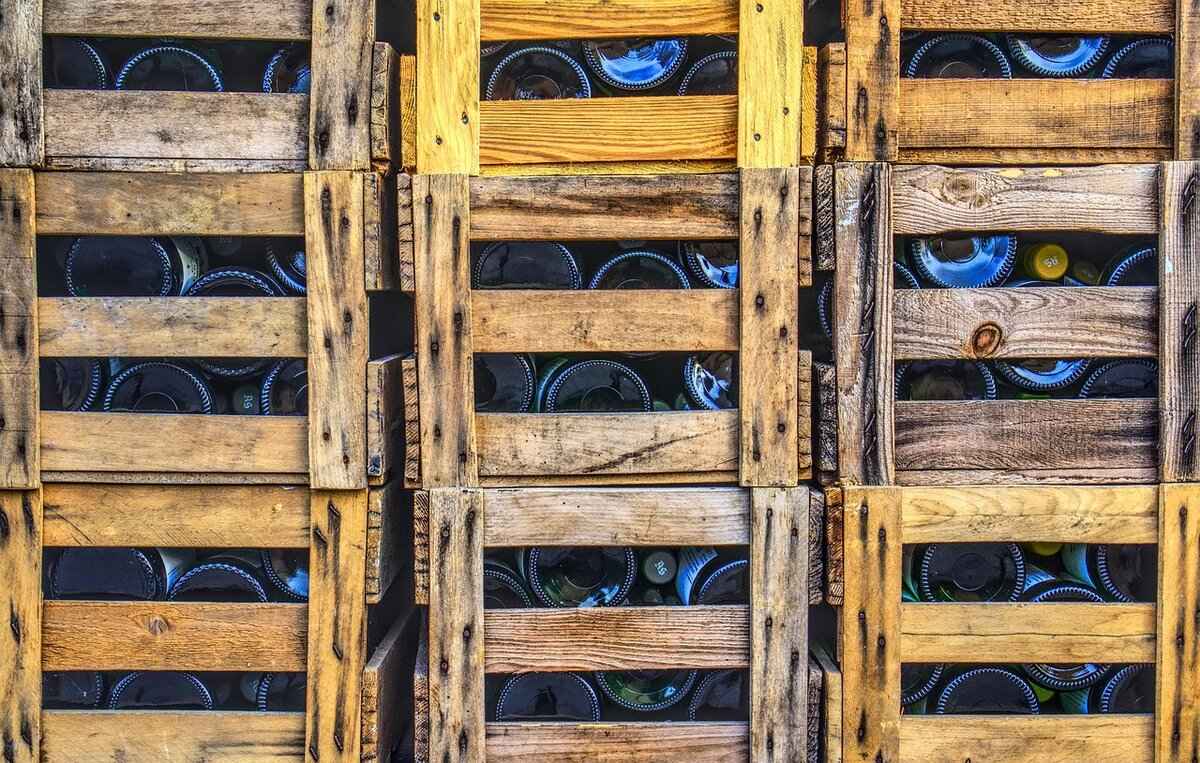
Is Gambino Sparkling Wine Worth the Hype?
When it comes to sparkling wines, Gambino Sparkling Wine has garnered significant attention and acclaim in recent years. But the question remains: This section aims to synthesize the insights gathered from previous discussions regarding its origins, taste profiles, and overall value, ultimately providing a clear verdict on whether this wine lives up to its reputation.
To begin with, Gambino Sparkling Wine is celebrated for its unique flavor profiles and refreshing bubbles, which are a result of its meticulous production process. The wine is crafted in Italy, where the terroir plays a crucial role in shaping its character. The combination of traditional and modern winemaking techniques further enhances its appeal, making it distinct from other sparkling wines.
In terms of taste, Gambino Sparkling Wine offers a delightful experience characterized by a harmonious blend of fruity notes and subtle floral aromas. Many enthusiasts describe the wine as crisp and refreshing, making it an ideal choice for various occasions, from casual gatherings to celebratory events. The wine’s versatility is also evident in its ability to pair well with a range of dishes, enhancing the overall dining experience.
Moreover, the different varieties of Gambino Sparkling Wine cater to diverse palates. Whether you prefer a sweeter option or a drier finish, there’s likely a Gambino variety that suits your taste. This diversity adds to its overall value, as consumers can choose based on their preferences and the specific context in which they plan to enjoy the wine.
Expert opinions on Gambino Sparkling Wine further bolster its reputation. Many wine critics have praised its quality, often highlighting its excellent value for money. With an average alcohol content that remains within a moderate range, it appeals to a broad audience, making it a popular choice among both casual drinkers and seasoned connoisseurs alike.
When considering the price point, Gambino Sparkling Wine is often seen as affordable compared to other high-end sparkling wines. This accessibility, combined with its quality, makes it an attractive option for those looking to indulge in a premium experience without breaking the bank.
In conclusion, after evaluating all these aspects, it is clear that Gambino Sparkling Wine does indeed live up to its hype. Its unique characteristics, delightful taste, and affordability make it a worthy addition to any wine lover’s collection. Whether you’re celebrating a special occasion or simply enjoying a quiet evening, Gambino Sparkling Wine is sure to impress.
Frequently Asked Questions
- What is the origin of Gambino Sparkling Wine?
Gambino Sparkling Wine hails from the beautiful vineyards of Italy, where the unique terroir and climate contribute to its refreshing taste and bubbly character.
- How does Gambino Sparkling Wine taste?
This wine offers a delightful blend of crisp acidity and fruity notes, making every sip a refreshing experience. Expect hints of apple, pear, and a touch of floral aromas.
- What food pairs well with Gambino Sparkling Wine?
Gambino pairs wonderfully with light dishes such as seafood, salads, and even spicy Asian cuisine. Its effervescence complements a variety of flavors beautifully!
- How is Gambino Sparkling Wine made?
The production involves traditional methods combined with modern techniques, ensuring a high-quality sparkling wine that retains its unique characteristics.
- Where can I buy Gambino Sparkling Wine?
You can find Gambino Sparkling Wine at local wine shops or online retailers, making it easy to enjoy this delightful beverage from the comfort of your home.
- Is Gambino Sparkling Wine worth the hype?
Absolutely! With its unique flavor profile and excellent quality, many connoisseurs agree that Gambino Sparkling Wine lives up to its reputation.

